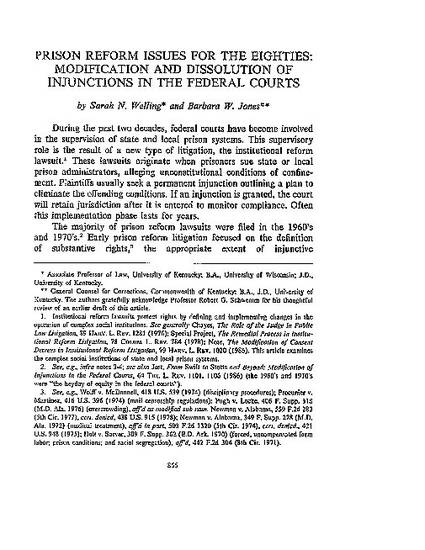
During the past two decades, federal courts have become involved in the supervision of state and local prison systems. This supervisory role is the result of a new type of litigation, the institutional reform lawsuit. These lawsuits originate when prisoners sue state or local prison administrators, alleging unconstitutional conditions of confinement. Plaintiffs usually seek a permanent injunction outlining a plan to eliminate the offending conditions. As prison litigation matured, the normal evolution of these lawsuits led to new questions taking center stage in the 1980's, questions of injunction, modification, and dissolution.
This article begins with a summary examination of prison reform litigation, and then analyzes the standards for modification and dissolution of injunctions. The article concludes that in spite of some ambiguous decisions and some references to a new, more flexible modification standard, courts in prison reform cases are actually applying the strict standard formulated by the Supreme Court in United States v. Swift & Co. In addition, courts are uncertain whether to use different modification standards for consent decrees and litigated injunctions. The courts that have distinguished the two types of orders disagree on the impact of the distinction. This article stresses that the best approach is not to distinguish consent decrees and litigated injunctions, but rather to apply the strict modification standard to both types of orders.

Connecticut Law Review, Vol. 20, No. 4 (Summer 1988), pp. 865-894